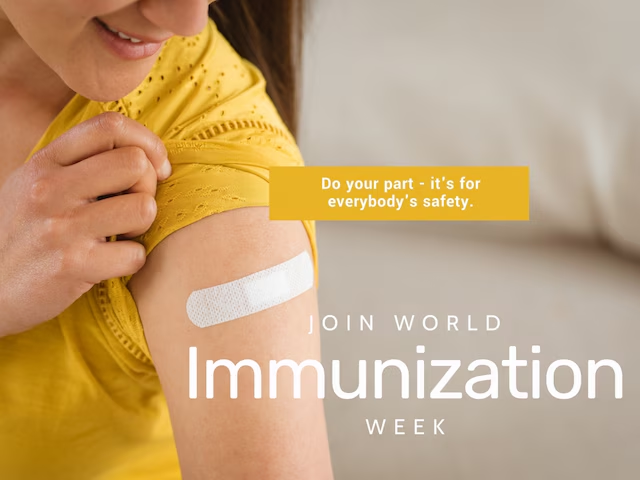World Immunization Week 2024: Theme, Date, Background, and the Top 5 Vaccines
A worldwide health event known as World Immunization Week (WIW) is typically celebrated from April 24 to April 30. Its objective is to raise immunization rates and protect individuals of all ages from infectious diseases. Among humanity’s greatest successes throughout the second half of the 20th century were the global immunization programs. Smallpox has been eradicated, polio has been defeated, and immunization programs have ensured that more children than ever before survive and develop.

Theme for World Immunization Week in 2024
The World Health Organization’s Expanded Programme on Immunization (EPI) will mark its 50th anniversary in 2024 with the theme “Humanly Possible” during World Immunization Week.
History of World Immunization Week
World Immunization Week was adopted in May 2012 by the World Health Assembly, which is the organization that sets policy for the World Health Organization (WHO). The World Immunization Week was conducted in 2012 and included more than 180 countries. Prior to 2012, Immunization Week was celebrated on several dates across the globe.
Five Crucial Vaccines for Adults and Children
One of the best ways for parents to protect their infants, children, and teens against sixteen potentially deadly illnesses is via vaccination. Adults may also be more vulnerable to illnesses that might be avoided with immunization due to factors including age, work, lifestyle, travel, or medical conditions.
Vaccination against polio
The Centers for Disease Control and Prevention (CDC) recommends that all children get a series of childhood vaccines, including the polio vaccine, to protect them against poliomyelitis, another name for polio. The CDC recommends that children get the polio immunization four times. One dose should be given to each of the following age groups: two months, four months, six to eighteen months, and four to six years.
Hepatitis B
The CDC recommends that everyone between the ages of 19 and 59 get the hepatitis B immunization. For those with hepatitis B risk factors who are 60 years of age and older, immunization is also recommended. For anybody over 60 without known risk factors, it is not advised. You do, however, have the option to get the hepatitis B vaccine if you fit into one of these categories. The disease known as hepatitis B causes liver damage.
Tetanus, diphtheria, pertussis (Tdap) Usually given once, when the child is 11 or 12 years old. The CDC recommends arranging a Tdap vaccine as soon as possible if you haven’t had one. A single dose of the Tdap vaccine should be administered between weeks 27 and 36 of every pregnancy. Tdap may protect you against respiratory issues brought on by diphtheria, tetanus, and whooping cough (pertussis). Every 10 years, a booster is recommended.
Influenza, or the flu
The CDC recommends that everyone six months of age and older get a yearly flu vaccination. Adults over 50 shouldn’t get the nasal spray influenza immunization since influenza may have major health effects on elderly people.
BCG
It is necessary for tuberculosis (TB), which is brought on by the human papillomavirus and usually affects the lungs, but it may also harm other organs, including the developing brain of a newborn or young kid. A severe instance might be fatal or cause additional issues. When detected early enough, TB is very hard to cure; treatment takes a long time and isn’t always successful.







